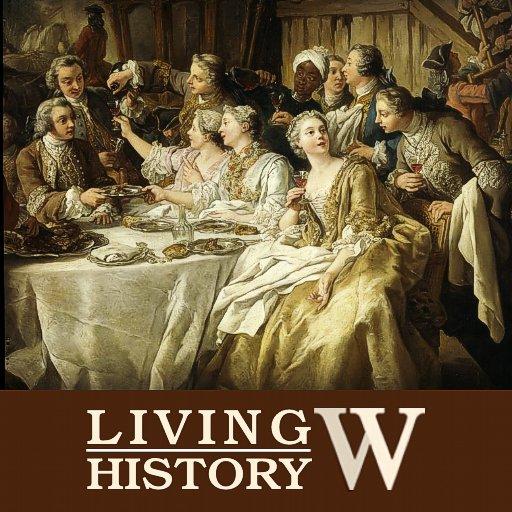I can't recommend this, yet; only because I have yet to hear it. I can attest that Greenberg is an engaging and informative lecturer. His music history courses are fun. This especially history-focused music course should be full of fascinating tidbits for all us history buffs. And for the next fourteen hours it's part of a two-for-one sale so I hope some of you see this fast and can take advantage of that--or spring for it full-price, or, perhaps, look for it in your public library's audiobook collection?
http://www.audible.com/pd/Arts-Entertainment/Music-as-a-Mirror-of-History-Audiobook/B01IWISTTA?ref=a_special-p_c3_lProduct_12
Music as a Mirror of History: Audio Course
Here's a summary blurb:
In the worlds of painting and literature, it's easy to see where history and art intersect. In Picasso's Guernica or Tolstoy's War and Peace, it's evident how works of art mirror and participate in the life of their times, sometimes even playing roles in historical events. But what about music?
In Music as a Mirror of History, Great Courses favorite Professor Greenberg of San Francisco Performances returns with a fascinating and provocative premise: Despite the abstractness and the universality of music - and our habit of listening to it divorced from any historical context - music is a mirror of the historical setting in which it was created. Music carries a rich spectrum of social, cultural, historical, and philosophical information, all grounded in the life and experience of the composer - if you're aware of what you're listening to. In these 24 lectures, you'll explore how composers convey such explicit information, evoking specific states of mind and giving voice to communal emotions, all colored by their own personal experiences. Music lovers and history enthusiasts alike will be enthralled by this exploration of how momentous compositions have responded to - and inspired - pivotal events.
Ranging widely across the 18th, 19th, and 20th centuries, you witness historical moments such as the French Revolution, the Napoleonic Wars, the Austrian-Ottoman conflict, the Hungarian nationalist movement, the movement for Italian unification, the economic ascent of the US, the Stalinist regime in the USSR, and World Wars I and II. Across the arc of the course, you'll see how these events were felt and expressed in the music of Mozart, Beethoven, Berlioz, Brahms, Verdi, Wagner, and many others, including modern masters such as Janáček, Górecki, and Crumb, and you'll hear superlative musical excerpts in each lecture. Join us for an unparalleled look into the power and scope of musical art.


